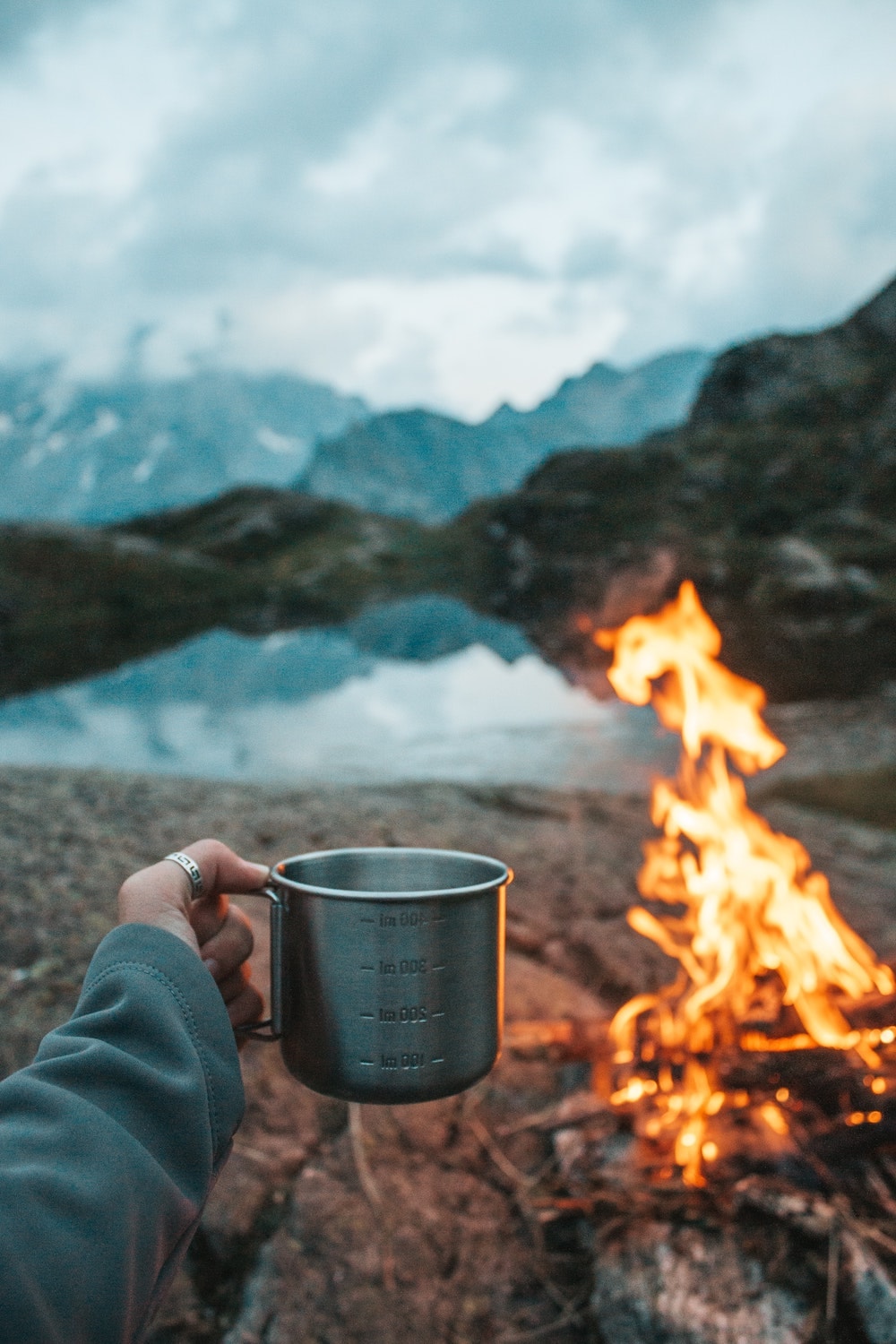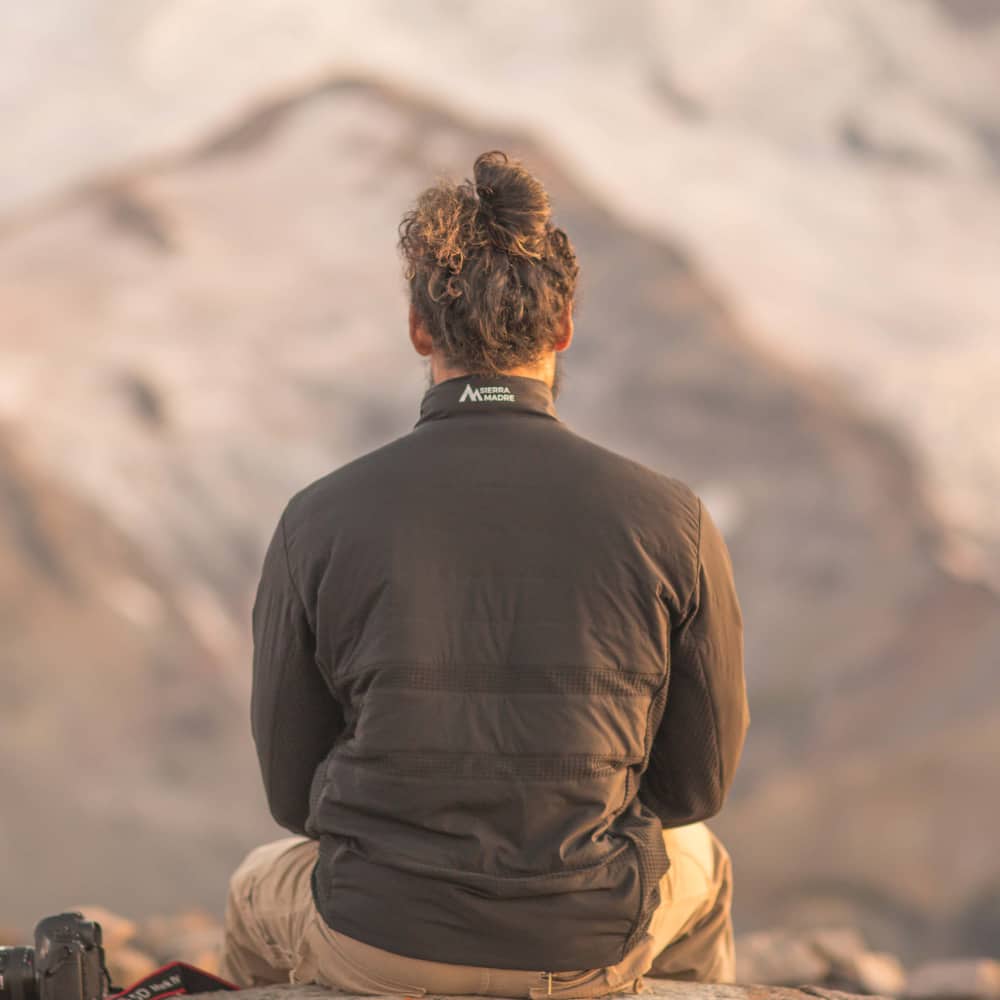So you're thinking about buying yourself a new camping tent, that's exciting! Congrats! There is nothing quite like heading out into the wild for a weekend of adventure in the great outdoors.
Truth is, there are so many options when it comes to tents - it can truly get a bit overwhelming, below we'll unravel a bit of the mystery to make sure you've asked the right questions before you pull the trigger. Let's dive in!
#1 HOW MANY PEOPLE?

The first step in figuring out what camping tent you should start with is to determine the size of the tent you need. To do this you really just need to know how many people will be camping with you and how far you will be carrying it?
Are you family camping? Are you solo backpacking? Are you headed off with your partner for a weekend adventure?
Tent sizes are generally listed by the number of people the shelter can house or protect, but the challenge here is that there's no industry standard as to what actually equals 1 person. Generally 1 person means 1 person can fit 'fairly' comfortably but there won't be much room after that.
So if it's you plus a friend you'd probably want a minimum of a 3 person tent. (you + your friend + 2 packs). If you don't up-size your tent you'll probably be putting all of your belongings outside of the tent in the vestibule. The vestibule option may not be ideal, since there's minimal coverage and no floor to protect your gear, it also means if you want something in your pack at 2am, you'll need to unzip the tent body and grab it out of your pack.

Now when you get into the larger family style tents, usually there's a bit more space but, it's always a good rule of thumb to count each person as a 1.5 (include their pack) and pick a tent accordingly.
MadreTip: Always count your pack as a half person (minimum).
#2 WHERE DO YOU WANT TO CAMP?

Believe it or not, where you're camping can have a big impact on the style tent you should consider. To keep things simple, we'll break down camping into two categories.
- In a Campground or at an Event: Camping in a designated campground means you will be close to your car, have amenities (toilet) and most likely be able to enjoy a smooth surface that is already ready for your tent. When you're camping in a campground you might find that a larger tent with a complete outer shell (that zips up) will suite you better for the following reasons: 1) you'll want to have the ability to change inside your tent, 2) zipping up for a bit of privacy can be a much needed relief when you're surrounded by other campers, 3) have friends over - it's a blast to invite new friends from campsites around you. You'll want a tent big enough to keep you dry so you can gather round your table and enjoy a game of spades. Some campgrounds have well maintained areas, some are paved (eek), some have mulch pads. One thing we definitely suggest is a footprint if you're staying in a campground, though the area will most likely be flat and free from debris, you'll definitely want another layer of protection for your tent floor (esp. when on a concrete pad)
- In the Wilderness: Camping in the wilderness, or the WILD, as we like to say is really an amazing experience, but requires a completely different mindset than the campground/event camping tent. What you want to think about with a wilderness camping tent is protection, comfort, and weight. When you're out in the wild you really have to trust your gear, you're completely self reliant and the tools at your side are the pieces of gear you've chosen. There's no packing up and running to the car if you have a gear failure, you could be miles from your vehicle. SO, you'll want to think about a few key elements for this tent. 1) Protection, make sure the fly you're getting is actually waterproof (we recommend a minimum of 1200mm PU, but 1500mm would be best), since most tents have poles, be sure it comes with a sleeve repair tube. I can't tell you how many times we've seen someone with a broken tent pole, it ruins your trip. 2) Comfort, you'll want enough space to be able to move around a bit and (if you need to) wait out a rainstorm - so having the room will make for a more enjoyable passing of the time. 3) Weight, you'll have to carry this - so you can't afford to take a palace. Keep the size and weight reasonable so that your back isn't enraged with your choice! (we recommend staying under 3lbs)
The main styles of camping tents.
- Cabin (Large, spacious, but extremely heavy - think Glamping)
- Family/Multi-Room (Enjoy a large area of space, but expect to be close to the car and not weather too many storms)
- Pop-Up (Easy to setup, lighter than the above, but also light on protection)
- Backpacking Free Standing (Great balance on setup, space, and weight)
- Backpacking Non-Free Standing (Lighter but some sacrifice in convenience and interior space)
MadreTip: If you're in a campground - bring a big enough tent that you can seal off and enjoy some privacy. If you're wilderness camping - try to stay under 3lbs and bring a repair kit!
#3 WHEN WILL YOU BE CAMPING?

Timing is everything they say. When it comes to selecting your perfect camping tent, you'll definitely want to understand the when behind your adventures. Camping in the summer will need a very different tent vs. camping in the winter. Of course there are some that can do both well so we'll try to highlight the main points that you should consider.
The primary aspect to consider boils down to the tent body. The tent body generally holds the poles and helps provide structure to the tent. The rain fly goes on the outside of this and keeps you dry. The tent body is usually composed of either a breathable fabric or a mesh (or some blend of the two). All other things equal the body is really going to be the pivot point based on when you'll be doing most of your camping. Most tent makers let you know what their design is intended for with the terms 2 season, 3 season, and 4 season. However I would never use a true 4 season tent in the summer - reality is a 4 season should be called a '4th' season tent. The good news is that 3 season tents are generally pretty adaptable. So here are some guidelines you can follow:
- Primarily a winter camper? You'll want a full fabric body with zip-out windows. This will help you retain heat and vent when needed. Be sure the fabric is highly breathable, with a DWR coating on the outside (helps with condensation fall back)
- Primarily a summer camper? You'll want a full mesh body, with a flexible fly design (two doors). This will allow air flow through the tent and keep you from sweating at 2am.
- Primarily a Fall / Spring camper? You'll probably end up with a mix of the two above, but here's what I'd look for - you'll want high fabric side walls to keep the rain splash out, a full mesh top, and a fly with two vestibules.
MadreTip: A good solid 3 season tent will most likely do well all 3 seasons (Fall, Spring, and Summer) BUT a 4 season tent is actually a '4th' season tent and is really only going to perform well in the winter.
#4 HOW LIGHT ARE YOU WILLING TO SPEND?

This is a pretty basic formula, the lighter you want your tent to be, the more you'll spend on it. Why's that? Well it's all about the materials built into the tent, light weight materials are pricey.
Now, why would you want it to be light? Well the primary reason to buy a lightweight tent is if you are going to be backpacking with the tent. If you're backpacking more than a couple miles from your car, trimming weight can really save you a lot of unnecessary back pain. That being said you will have to give up a two things to achieve this light weight status:
- Interior Space
- Cash Money
Now, not everyone needs to be light weight, so if you're staying close to the car - stick with a larger more affordable tent, just don't skimp on the waterproofing!

For those that are going to be doing a little backpacking here are a few pluses to expect from a lighter weight setup:
- Easier on your back.
- Takes up less space in your pack.
- Shorter setup time.
- Smaller footprint (less ground to clear out).
However, this is a good opportunity to understand a very important concept. There is such a thing as Stupid Lightweight. Stupid Lightweight is when you sacrifice your comfort or a restful night's sleep to save a few grams. This has long been a misconception in the outdoor world and though the tide is changing and people are starting to agree with the wholistic lightweight approach - it's worth mentioning here.
MadreTip: Balance your travel distance with your budget, remember the further you go - the lighter you'll want to carry. Don't get stupid lightweight though and end up sacrificing your comfort for a few grams.
#5 ALL INCLUDED, OR IS EVERYTHING PURCHASED SEPARATELY?

It's worth noting that not all tents are sold equally. Make sure you have everything you need for your tent BEFORE you press the buy button. This may sound silly, but there are plenty of tent manufacturers that do not include stakes or tie-out lines 😳
Here are the major items that should be included in your tent:
- Tent Body
- Tent Fly
- Tie-Out Lines
- Tent Stakes
- Stuff Sacks
You may even want to consider a foot print or ground cloth, pending the environment you'll be camping in. There's nothing worse than buying a piece of camping equipment, only to find out you needed to buy tie-out lines for it!
MadreTip: Read the fine print! Make sure your tent includes the basics.
#6 THE MOST IMPORTANT QUESTION... IS A GROUND TENT RIGHT FOR YOU?

THERE'S A BETTER OPTION FOR YOU TO CONSIDER...
When you're thinking about buying a camping tent, be sure you've considered all of your options. Ground camping definitely has a few key disadvantages and these can really surprise you if you weren't ready for them!
The biggest issue you'll have is pressure points, being on the ground means you are vulnerable to the uneven / rocky terrain and eventually your body will notice!
The other issue to be aware of is flooding, even just a couple inches of rain can really ruin a tent camping adventure.
Thankfully, there's a new way to camp in the wild, we call it Air Camping. It's an incredible way to get out of the mud and sleep in the air, completely protected and comfortable!


Getting up in the air on your camping trips and backpacking trips can really change the game when it comes to amplifying your adventure experiences.
We've built our entire company around this because we want to EMPOWER you when you're in the WILD, because if you feel at home in the wild we know you'll enjoy it that much more.





